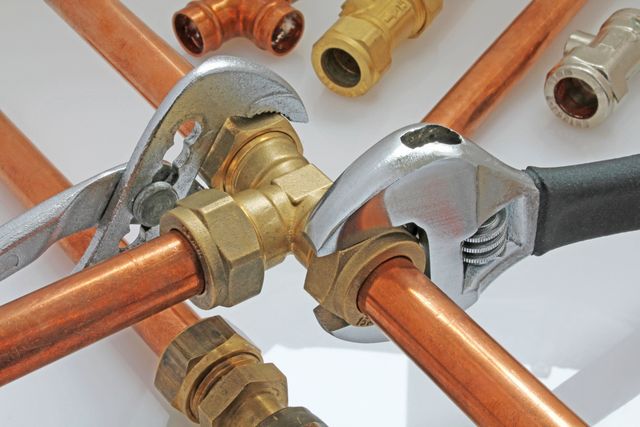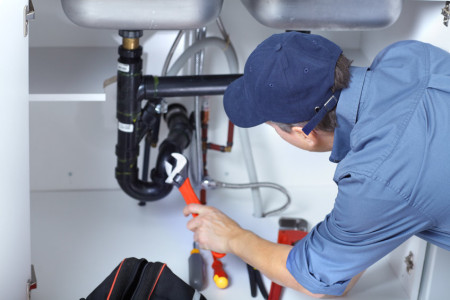What're your ideas on Expert Tips for Emergency Plumbing Repairs?

Plumbing emergencies can strike at any moment, triggering tension and possible damages to your home. Whether it's a ruptured pipeline, a stopped up drain, or a leaking faucet, knowing how to manage the scenario till a specialist plumbing technician arrives can conserve you from more issues. This post offers vital emergency plumbing pointers to aid you alleviate damage and regain control during a pipes dilemma.
Shut off the Water Supply
The first step in any kind of pipes emergency is to shut off the water. For local problems, such as a leaking tap or bathroom, turn off the shutoff near the component. In the case of a major leakage or burst pipe, situate your home's primary water shut-off valve and transform it off promptly. Understanding the location of these shutoffs in advance can conserve useful time during an emergency situation.
Turn off Your Water Heater
In particular emergency situations, such as a ruptured pipe, it's wise to turn off your water heater. This protects against getting too hot or damage to the device when water stops moving. Shut off the power supply to the water heater (electrical or gas) and let it cool off to stay clear of prospective threats.
Temporarily Quit a Ruptured Pipe
A ruptured pipe can result in substantial water damage in mins. To mitigate the problem:
Call a professional plumbing professional instantly to resolve the problem completely.
Have an Emergency Plumbing Package
Prepare a basic pipes emergency situation kit to manage minor problems properly. Your kit must consist of:
Having these tools accessible can make a significant difference in your capacity to manage emergencies.
Unclog Drains Pipes Securely.
A clogged drain can be a discouraging and messy issue. Right here's just how to tackle it:.
If these methods don't work, prevent utilizing too much pressure, as it might worsen the blockage.
Manage Overflowing Toilets.
An overflowing bathroom can trigger instant turmoil. Right here's what you must do:.
Address Little Leaks with Short-term Fixes.
Small leaks can promptly come to be substantial issues if left unattended. Utilize these temporary fixes up until professional help gets here:.
While these solutions aren't long-term, they can help lessen water loss and damage.
Take Care Of Frozen Pipeline Carefully.
In chillier climates, icy pipes are an usual emergency. If you believe a frozen pipe:.
Know When to Call a Specialist.
While quick fixes can help momentarily, specific pipes problems call for instant professional interest. Call a plumbing if:.
Without delay getting in touch with a specialist guarantees the concern is dealt with appropriately and prevents additional difficulties.
Avoid More Damage.
Taking quick activity to minimize damages can conserve you time and money over time. Below's exactly how:.
Verdict.
Plumbing emergencies can be frustrating, yet with the right knowledge and tools, you can handle the scenario properly until help shows up. By switching off the water, addressing small leaks, and utilizing momentary solutions, you can decrease damage and keep your home safe. Remember, these suggestions are momentary options; constantly seek advice from an accredited plumbing technician to manage the source of the issue. Preparation and quick thinking are your best allies in any pipes emergency situation.
8 Helpful Tips for Managing Plumbing Emergencies at Home
If your plumbing system hasn’t failed once, wait for it because almost everyone has a story to tell. Sometimes, it could be simple emergencies such as a leaking pipe, a blocked cistern, or even a big burst pipe. In situations like this, you need to have some handy tips to save you some money and from possible damages.
Take care of minor issues early.
Sometimes, you could have avoided an emergency by taking proactive measures while it was still early. Some major plumbing emergencies can be a result of an ignored minor issue. We recommend that you have items like plumbing tapes and other related items. A plumbing tape can allow you to manage minor leaks before the plumber arrives.
Cut off the water supply.
This tip is essential in almost any type of leakage problem. For problems like minor leakages in the toilet or kitchen, turn off the supply that takes water to the affected pipes. If the leakage is a major pipe, you must shut off the supply valve to the entire building. This will help you avoid flooding your home and neighbors if you share a flat.
Know your plumbing system
Folks typically move into a new apartment without understanding the water supply around the building. This can prove disastrous if a water emergency arises and the plumber is far away. The previous tip will prove useless if you don’t practice this one. More importantly, know where your water shut-off valve is located – you’ll need that knowledge to prevent potential home floods.
Have some common handy tools
There are lots of plumbing emergencies that you can handle without hiring a plumber. That’s why you must keep some tools available always. Some tools that you can use to fix simple plumbing emergencies easily include plumbing tapes, screwdrivers, thread seal tapes, plungers, pliers, tape measures, and rubber gloves.
Insulate your pipes from cold
You’ll save yourself from many plumbing expenses if you protect your water pipes from the cold. This is because of the harmful effects that cold weather can have on your pipes. During winter, your pipes can burst from being overly expected to freezing temperatures. So, make sure insulators are there to keep the pipes working correctly.
Avoid practices that will clog your toilet.
Many people indulge in practices that can damage the plumbing system of the entire building. One of these is when they use their toilet to dispose-off garbage. They flush all kinds of things, such as paper towels, bandages, hairs, female sanitary products, etc., down the toilet. This will block your toilet in the long run, incurring unnecessary expenditures. Dump such waste in the trash instead.
Check your dials regularly.
Sometimes, there could be leakages in your home without noticing them in time. So, constantly monitor your water meter dial. If the dial is reading when there is nobody using water, this is an indicator that there is leaking. Check for leaks immediately. Call a plumber as soon as possible if you can’t find any.
https://www.constructionplacements.com/8-helpful-tips-for-managing-plumbing-emergencies-at-home/

I was shown that write-up about Expert Tips for Managing a Plumbing Emergency Until Help Arrives through a good friend on our other blog. Do you know about another person who is very much interested in the topic? Feel free to share it. Thanks for your time. Revisit us soon.
Call Today